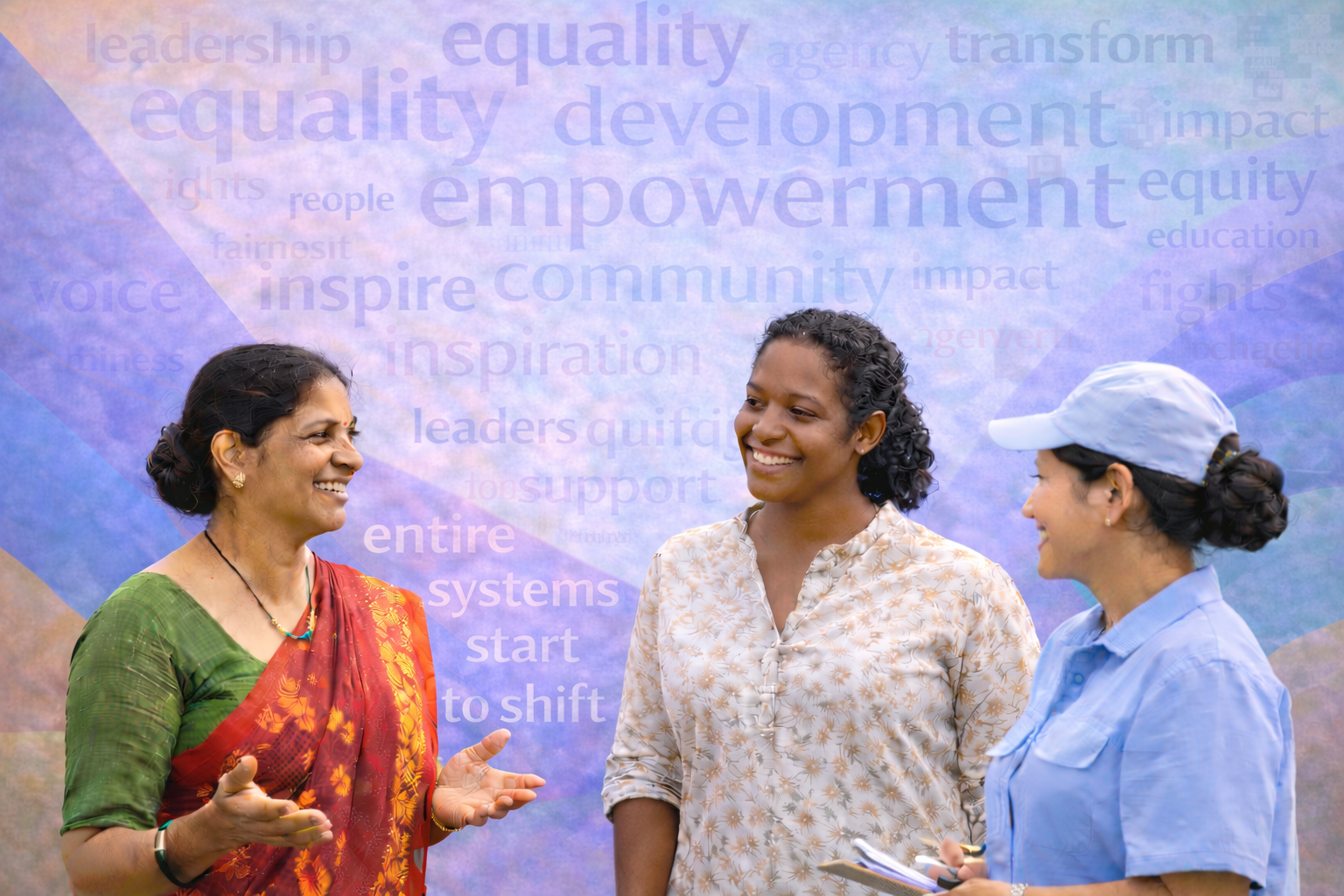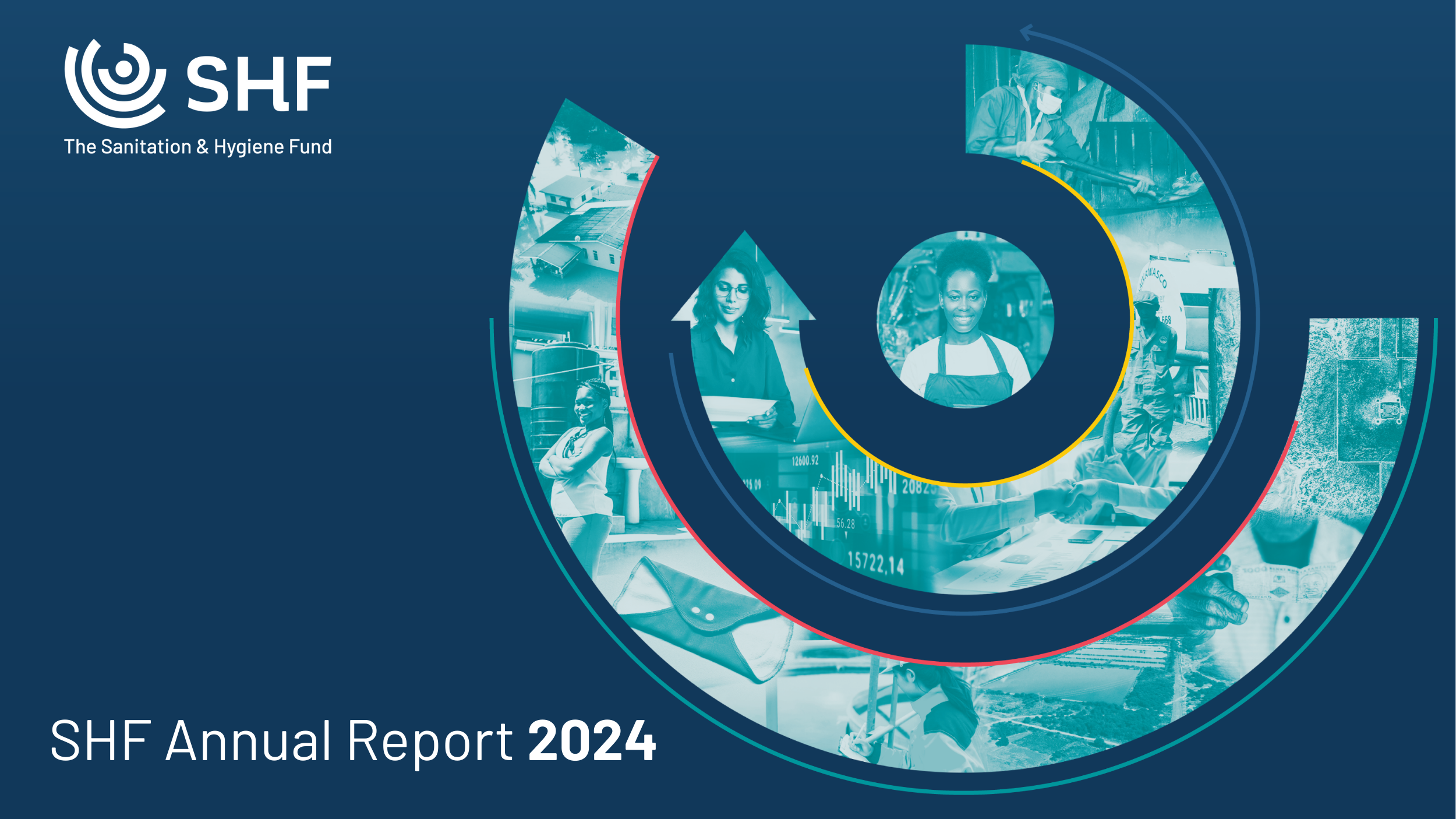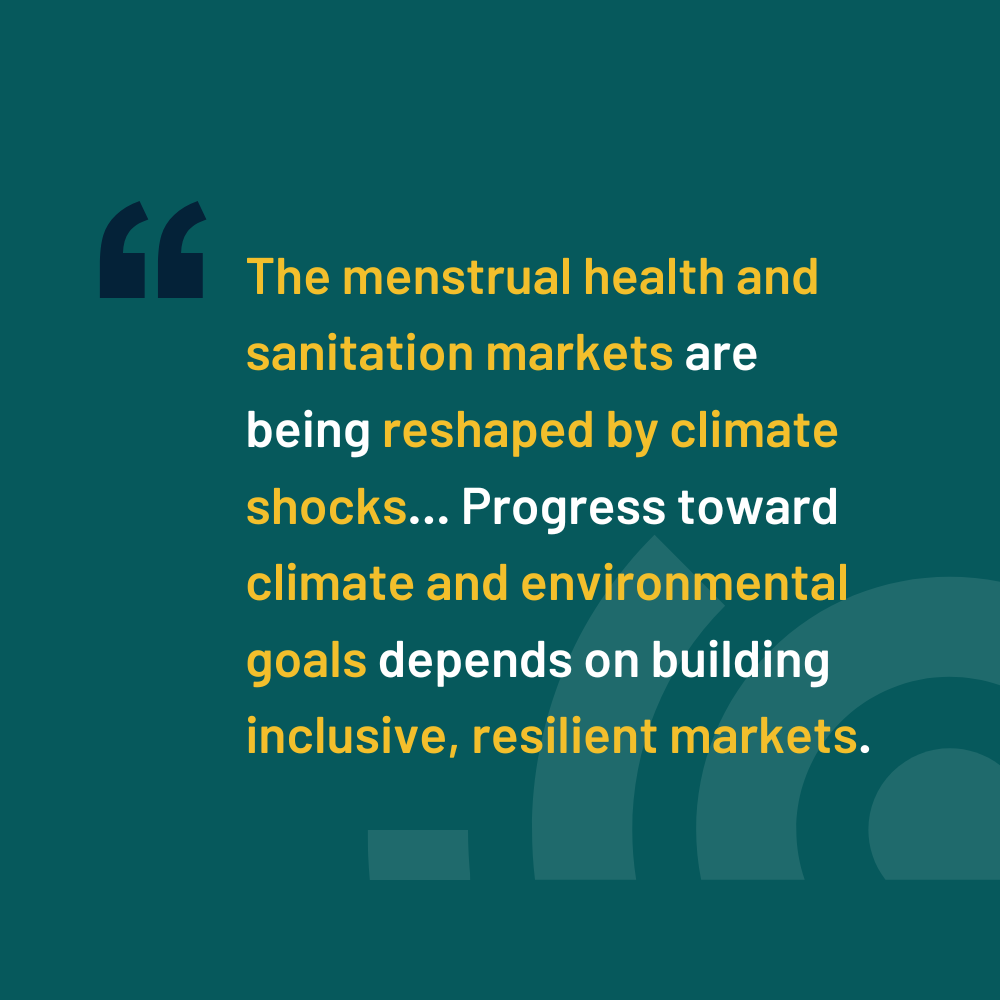
SHF’s 2024 in Review: Driving access, innovation and impact in sanitation, hygiene and menstrual health

SHF’s latest annual report 'Promoting Sustainable Growth through Sanitation, Hygiene and Menstrual Health' highlights a year of steady progress — expanding access to safely managed sanitation, scaling local enterprises, and unlocking new financing to build sustainable sanitation economies and the menstrual health market through pioneering initiatives like Next Generation Sanitation and Capital M.
In 2024, SHF’s efforts helped more than 600,000 people in Kenya and Uganda gain access to safely managed sanitation. Nearly 70 private sector enterprises received critical capacity-building and financing support to help them grow. And millions of dollars in public and private financing were leveraged for sanitation, alongside initiatives to improve tracking of public expenditures in East and West Africa.
On menstrual health, 2024 marked the launch of Capital M — SHF’s global initiative to build a thriving menstrual health market. From supporting efforts to establish international standards for menstrual products to fostering innovation and economic inclusion, Capital M is changing how menstrual health is accessed in Low- and Middle-Income Countries (LMICs).
The SHF Annual Report 2024 demonstrates how market-based approaches can drive access, build local economies, and accelerate progress on Sustainable Development Goal (SDG) target 6.2, critical to the health, growth and prosperity of people, economies and the environment. In a rapidly evolving global development landscape, SHF’s pioneering models — Next Generation Sanitation and Capital M — stand out as solutions capable of driving sustainable, transformative impact. The steadfast commitment of our donors, the Kingdom of the Netherlands, Switzerland and the Gates Foundation, has been instrumental in advancing our mission to create healthier, cleaner, and more equitable communities.
“Midway to 2030, it is no mystery that the SDG targets related to hygiene, menstrual health, and wastewater — cornerstones of public health, economic prosperity, and environmental sustainability — are largely off-track. SHF’s market-based approaches can turn these intractable development issues into investment opportunities, offering the sustainability that traditional approaches have failed to deliver in the sector,” writes Cecilia Akintomide, Chair, SHF Board in her foreword.
Key to achieving this impact are partnerships and the SHF Annual Report 2024 highlights new partnerships with the Development Bank of Nigeria and the launch of the UN Multi-Partner Trust Fund, co-designed with the UN Environment Programme (UNEP) and the UN Capital Development Fund (UNCDF), as promising avenues to catalyze much-needed investment in sanitation, hygiene, wastewater and menstrual health.



